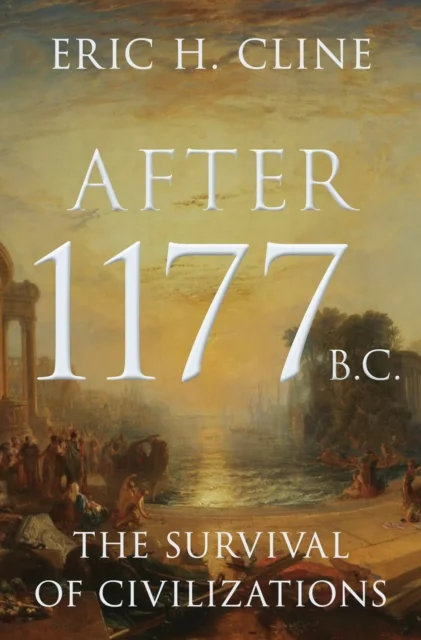Sometime around 1150 BC, the dense network of politically, economically, and culturally interdependent states around the eastern Mediterranean collapsed. In 2014, GWU archaeologist Eric Cline wrote a book about it. And then, surprisingly, it became a bestseller.
Okay, maybe it’s not that much of a surprise: most people can recognize an obvious historical analogy when it hits them over the head, and the globalized1 state system of the Late Bronze Age has extremely clear parallels to the modern day. An interconnected and cosmopolitan world? Centralized state bureaucracy? High-level diplomacy between ruling elites? A technologically complex civilization enabled by extensive international trade along lengthy and elaborate supply chains? Well, gosh, that seems remarkably familiar. An audience that had just weathered a global financial crisis (and, later, a global pandemic) was perfectly poised to appreciate Cline’s exploration of the fragility of complex systems. No wonder it sold! (A copy entered the Psmith household in early 2020 for, uh, obvious reasons.)
Cline’s basic argument in the book was that the Collapse was due not to any single cause but to a “perfect storm” of calamities: drought and accompanying famine, earthquake, internal rebellion, external invasion. These were all problems that the civilizations of the Bronze Age Mediterranean had faced and survived in the past, but under their combined onslaught the most fragile parts of the system at last began buckle. When one society disintegrated, its sudden absence from the interconnected global economy became a new stressor on its surviving neighbors — until at last, domino-like, the whole thing came down.2 It would be decades, or in some places centuries, before the standard of living returned to anything like its previous level, and it would be nearly five hundred years before an international system as complex and sophisticated as the world of the Late Bronze Age emerged.
Now, a decade after his original book, Cline has a sequel exploring what happened after the Collapse. Which civilizations were able to rebound to something approaching their former glory, which barely managed to limp along into the Iron Age, and which vanished into the sands of time? And, more importantly, why?
This is a much more difficult story to tell. The original 1177 B.C. spent much of its page count on the zenith of Bronze Age civilization, the 15th through 13th centuries BC, to explain what it was that did the collapsing. It’s a sweeping tale, full of wonderful stories and fascinating digressions into the historicity of the Trojan War (yes) and the Exodus (not archeologically substantiated) as well as being a compelling portrait of a complicated set of societies. Cline’s narrative darts from Egypt to Assyria to the Aegean to the Hittites, treating each in turn as he moves forward through time towards what we all know is coming.
But chronological framing is impossible for the sequel. There is, definitionally — there can be — no grand narrative of regional divergence after the fall of a “world-system“. The fate of Mesopotamia is no longer linked to that of Greece; there are no more Cretan envoys in New Kingdom tomb reliefs, no more battles between the Hittite Great King and the wanax of a Mycenaean palatial center, no more Uzbek tin shipwrecked off the coast of Anatolia. Once the ties are cut, each story must stand alone, and accordingly Cline gives each region its own chapter.
Alas, this is a lot less fun to read.
1. For sufficiently small values of “globe”. But larger than you might expect!
2. The revised 2021 edition apparently gives a larger role to climate factors, especially the 3.2kya megadrought, but that’s not the one I read and anyway the other elements were still present.






